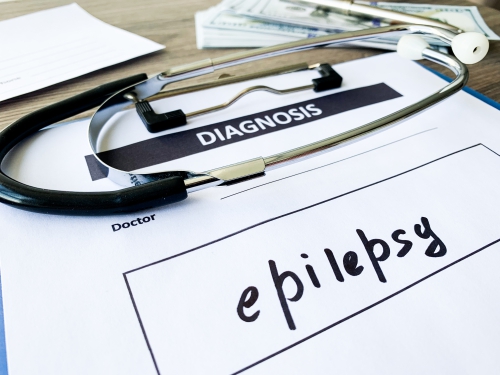Alzheimer's Disease, Memory loss, Elderly, Mental health, Dementia
Description : Alzheimer’s disease is a progressive disorder that leads to the degeneration of brain cells. It
Article Details :
What is Alzheimer’s disease?
Alzheimer’s disease is a progressive disorder that leads to the degeneration of brain cells. It is the most common cause of dementia which causes a continuous decline in your thinking, behavioural and social skills.
Forgetting recent conversations or events are usually the early signs of Alzheimer’s disease. In addition, with progression of the disease, you will experience severe memory impairment which will prevent you from doing your everyday activities. Alzheimer’s disease is usually diagnosed after the age of 65, but can also occur earlier which is known as early onset Alzheimer’s disease.
In the United States alone, around 6 million citizens are affected by the disease and was the sixth leading cause of death in the year 2017.
Unfortunately, there is no cure for Alzheimer’s disease. However, there are medications available to temporarily improve symptoms and slow the rate of progression of the disease. Death from Alzheimer’s disease are usually due to complications like malnutrition, dehydration or infections.
What are the causes of Alzheimer’s disease?
Alzheimer’s disease is caused by a combination of lifestyle, genetic and environmental factors which affects the brain over time. Genetics may play a key role in developing the disease. One gene in particular which is linked to Alzheimer’s disease is Apolipoprotein E (APOE).
Furthermore, there are 2 substances that are associated with the development of Alzheimer’s disease, namely beta-amyloid protein fragment and Tau protein. When these proteins fail to function properly, this leads to the damage, loss of connection and death of brain cells (neurones). In addition, this process takes years to develop symptoms and in advanced stages, the brain significantly shrinks.
When beta-amyloid protein fragments cluster together, they have a negative impact on neurones and disrupt connections between them. These clusters form larger deposits which are called amyloid plaques. Tau proteins are involved in the neuron’s internal support and transport system to carry nutrients. In Alzheimer’s disease, these proteins stick together and form long filaments which are called neurofibrillary tangles that disrupt the neuron’s ability to communicate with other cells.
What are the risk factors of Alzheimer’s disease?
There are several factors which may increase your risk of developing Alzheimer’s disease and these are:
- Age: this is the greatest risk factor for Alzheimer’s disease. The older you become, the higher your risk of developing the disease.
- Family history and genetics: If your sibling or parent has Alzheimer’s disease, you are at increased risk of developing the disease. The Apolipoprotein E (APOE) is linked to the development of Alzheimer’s disease. Having this gene does not mean that you will definitely develop Alzheimer’s disease but simply means that you are at increased risk of developing it.
- People with Down syndrome: many people with Down syndrome develop Alzheimer’s disease. This may be due to the fact that they have 3 copies of the chromosome 21 and therefore 3 copies of the gene responsible for the production of beta-amyloid. In addition, signs and symptoms of the disease may develop 10 to 20 years earlier in these people.
- Lifelong learning: lifelong learning and socially stimulating activities is associated with a reduced risk of developing Alzheimer’s disease.
- Previous head injury
- Lack of exercise
- Poor sleep pattern
- Obesity
- High blood pressure
- Cigarette smoking
- High cholesterol
- Poorly controlled type 2 diabetes
What are the signs and symptoms of Alzheimer’s disease?
The main symptom of Alzheimer’s disease is memory loss. An early sign of the disease is difficulty in remembering recent events and then as the disease progresses, memory loss worsens. The brain changes associated with Alzheimer’s disease will result in increasing difficulty with:
- Memory: having occasional memory lapses is normal. However, the memory loss in Alzheimer’s disease is worse and persistent. This result in the inability to perform daily activities. People affected by Alzheimer’s disease may:
- Frequently misplace their belongings
- Repeat the same questions and statements again and again
- Forget recent conversations or events and do not remember them later
- Get lost in familiar places
- Forget the names of family members or objects
- Decision making: there will be a decline in your ability to make decisions and judgements
- Thinking ability: Alzheimer’s disease affects your concentration and thinking abilities. In addition, multitasking is especially challenging
- Performing daily activities: if you have advanced stage Alzheimer’s disease, you may find it difficult to perform basic tasks such as dressing, cooking and Read more













